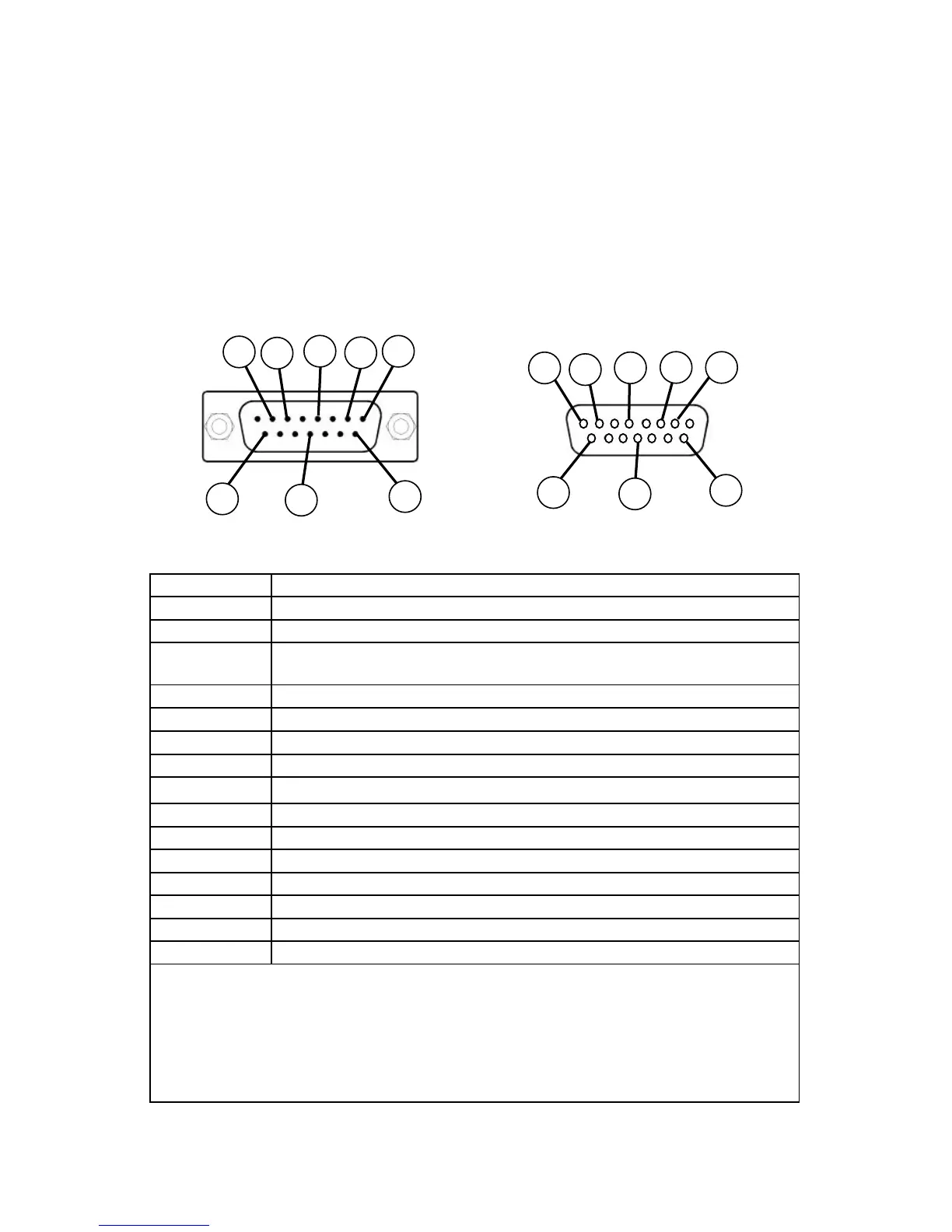68
Pin Number Function
1 Ground
2 Primary Analog Signal Output
3
Analog Tare (meters — when grounded)*
Analog Set-Point Input (controllers)*
4 Ground
5 Power Supply Common
6 Ground
7 Power Supply (+Vdc)
8 RS232 Tx (send) / RS485 –
9 Ground
10 N/C
11 N/C
12 Secondary Analog Signal Output / xed 5.12Vdc*
13 N/C
14 N/C
15 RS232 Rx (receive) / RS485 +
Check your device’s calibration certicate and user manual for the actual electrical input/
output requirements, as all instruments are custom congured to some extent.
NOTE: Pins 1, 4, 5, 6 and 9 are connected together inside of the device and are common
grounding points.
N/C = Not Connected/Open (can be used for custom pin assignments – please consult factory).
* Added to allow for full use of features on FMA-1600A devices, may not be present on host wiring.
DB15A (XFM)
The following pin-out chart describes the safest and generally compatible arrangement when
connecting a non-FMA-1600A DB15 wire to a DB15A equipped FMA-1600A. Not all features
may be available between brands, but the common denominators are featured in our DB15
offerings, along with some options for customization.
Male Connector Front View Female Connector Front View
8
15
12
9
2
5
8
15
12
9
2
5
3
3
7
7
DB15 Pin-Outs
If your instrument was ordered with a DB15 connection, be sure to check the
Calibration Label on the device and reference the appropriate pin-out diagram.
